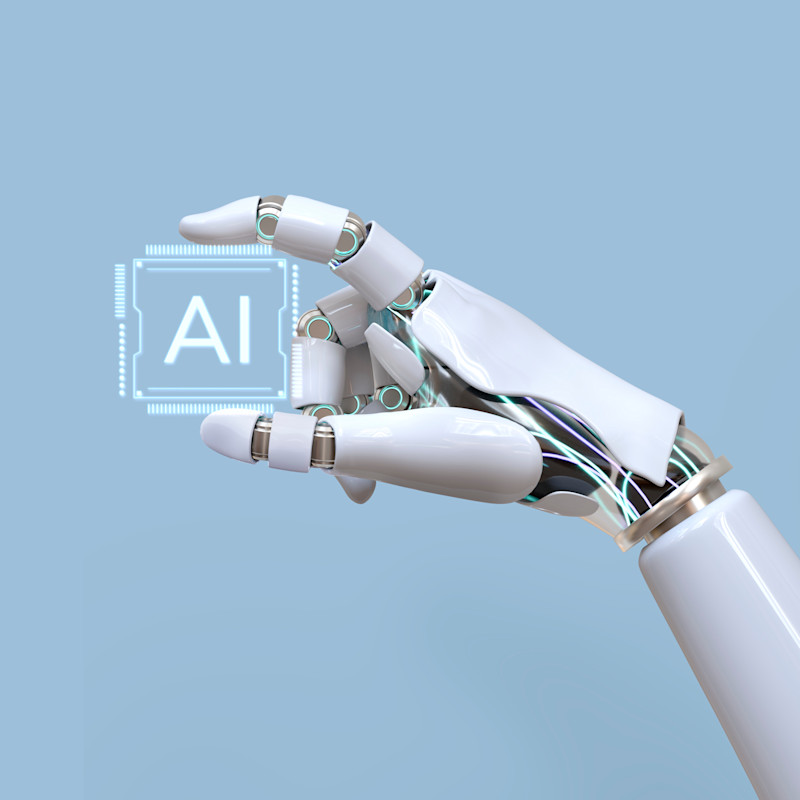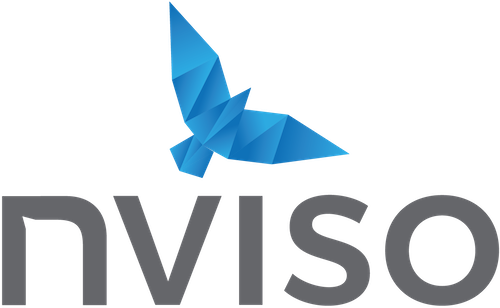Artificial intelligence, where are we going?
- The future of AI

Artificial intelligence, a term that often evokes images of science fiction and futuristic robots, has become more than just fiction. It is now a reality integrated into our daily life. From our smartphones that understand our needs to content recommendations on our favorite streaming platforms, to advances in medicine and scientific research, AI is everywhere. But this is just the beginning. The future of AI looks even more fascinating and promising, offering possibilities beyond the imagination. In this article, we will explore the trends, challenges and perspectives of AI, and dive into this ever-changing universe. Prepare for a journey into the future of AI.
Its recent evolution
AI has made giant strides in recent years, evolving at lightning speed. One of the most striking trends is the rise of deep learning, which has enabled machines to gain a finer understanding of data, speech and image. Thanks to language models like GPT-4, computers are able to generate text in an almost human way, opening the door to applications ranging from automatic writing of articles to the creation of artistic content. Autonomous vehicles, powered by AI, are increasingly common on our roads, promising to revolutionize the transportation industry. AI is also used to accelerate drug discovery, analyzing millions of chemical compounds in record time. These advances are just the tip of the iceberg, and AI continues to evolve rapidly.
The different areas of application
AI has broken into almost every aspect of our lives. In the field of developing personalized treatment plans. In industry, robots and autonomous systems powered by AI optimize production and logistics, while improving workplace safety. Social media uses AI to personalize our news feeds, recommend content, and detect fake accounts. Autonomous VCVs and voice assistants transform the experience of transport and human interaction. AI is also at the heart of scientific research, accelerating the discovery of new knowledge in fields as diverse as physics, astronomy and ecology. The fields of application of AI are endless, and its impact continues to be felt significantly in almost every sector of our society.

Emerging technologies
Emerging technologies in artificial intelligence are at the forefront of the technological revolution. Deep learning, consisting of multi-layered neural networks, has enabled major advances in image recognition, machine translation and autonomous decision-making. Natural language processing, a branch of AI that focuses on understanding and generating human language, powers our voice assistants and chatbots, revolutionizing human-machine communication. Computer vision, which allows machines to "see" and interpret the world, has major implications in autonomous vehicles, surveillance, and augmented reality. These technologies are constantly evolving, and their impact on our future will be immeasurable. They pave the way for even more innovative applications of AI, fundamentally changing the way we live, work and interact with the world around us.
The impact on society
The impact of artificial intelligence on society is profound and contrasted. On the one hand, AI has brought substantial benefits, improving efficiency in various fields, from medicine to logistics. It has the potential to solve complex problems, automate tedious tasks and even prevent accidents. However, there are also disadvantages to consider. Concerns about data privacy are legitimate, as AI requires a large amount of personal information to function effectively. In addition, there are ethical issues related to the use of AI, including algorithmic discrimination and automated decision-making. Balancing the pros and cons of AI is a challenge that society faces as the technology continues to grow.
AI and employment
One of the most debated questions about the future of AI is its impact on the labour market. As AI continues to progress, some jobs can be automated, raising concerns about job loss. However, it is essential to recognize that AI can also create new jobs and transform the nature of work. Skills in programming, machine learning and natural language processing are increasingly in demand. In addition, skills-based jobs such as creativity, project management, and ethical decision-making should gain prominence. At the end of the day, the relationship between AI and employment is complex, and it is essential to foster lifelong learning and adaptation to changes in the labour market.
Future scenarios
The future of AI promises to be rich in innovations and opportunities. We can imagine major advances in healthcare, where AI could revolutionize the diagnosis and treatment of diseases, offering unparalleled personalization of healthcare. Smart cities could become the norm, thanks to AI systems that optimize transportation, energy management and citizens' quality of life. Self-driving cars could make our travels safer and more efficient, reducing traffic congestion and greenhouse gas emissions. The Internet of Things could be more interconnected than ever, with smart devices that anticipate our needs and simplify our daily lives. The possibilities are endless, and AI will continue to play a central role in these future developments.
The challenges ahead
Despite its incredible potential, AI faces a number of challenges in the coming years. One of the most pressing is regulation. As AI applications continue to grow, governments and regulators need to develop legal frameworks to guide its ethical and responsible use. Security is another major challenge. As AI becomes ubiquitous, potential cybersecurity threats increase. Data protection and user privacy are essential. In addition, AI faces a well-documented challenge, that of algorithmic bias. AI systems can replicate existing biases, raising questions about fairness and justice. It is imperative to work to mitigate these biases to ensure that AI benefits everyone. These challenges are just a few, but they require immediate attention to shape a future where AI can be a positive asset for humanity.

Human-AI collaboration
One of the most exciting trends for the future is the close collaboration between humans and AI. Rather than replacing human workers, AI should complement them. AI systems can perform repetitive and tedious tasks, freeing up time for humans to focus on more creative and cognitive activities. For example, in the medical field, doctors can use AI systems to quickly analyze large sets of medical data, allowing them to make more accurate diagnoses and recommend personalized treatments. Similarly, in industry, workers can collaborate with AI robots to perform dangerous or arduous tasks. This human-AI collaboration promises to create exciting new opportunities, unlocking human potential and driving innovation across diverse sectors.
In conclusion, the future of artificial intelligence is promising and fascinating. We are witnessing a rapid transformation of society, industry and our daily lives thanks to AI. Recent developments and emerging technologies pave the way for a future where AI will improve medicine, revolutionize industry, connect citizens in smart cities, and redefine how we interact with the digital world. However, these advances come with significant challenges, including the need to regulate AI to ensure its ethical and fair use. In addition, human-AI collaboration will be at the heart of this future, opening the door to new opportunities and complementarity between human and artificial capacities. As we move forward in this AI future, it is essential to remain aware of the implications and responsibilities that flow from it. AI will continue to shape our world, and it is our duty to guide its evolution to make it a positive force that improves everyone’s life.
A strong commitment to your security and that of your data

ISO-27001 Certification

GDPR compliance

SSL technology

Pentest by Nviso
Ready to boost your productivity with Leexi?
Leexi AI Notetaker takes notes for you
